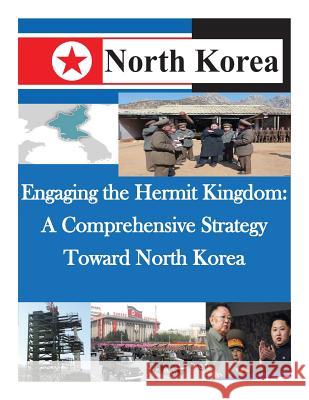Engaging the Hermit Kingdom: A Comprehensive Strategy Toward North Korea » książka
Engaging the Hermit Kingdom: A Comprehensive Strategy Toward North Korea
ISBN-13: 9781500520465 / Angielski / Miękka / 2014 / 26 str.
Recent revelations that North Korea has maintained its nuclear weapon program in violation of prior international agreements highlight the adversarial relationship between Washington and Pyongyang.1 For 50 years, American foreign policy has tried to co-opt or shun North Korea, usually without success. Prior U.S. attempts at engagement have been halfhearted at best, often being nothing more than an opportunity for Pyongyang to extract concessions from the West. The United States should re-evaluate its approach toward North Korea and implement a comprehensive and integrated strategy that offers tangible incentives for cooperation backed by substantial costs for non-compliance. Such a strategy is presented in part one of this paper. U.S. objectives toward North Korea are identified and prioritized; the effectiveness of diplomatic, economic, information, and military means toward North Korea are presented; and a plan for implementing these options is developed. Part two assumes that peaceful options for attaining U.S. goals in North Korea fail and that Washington must resort to military force. Capabilities, constraints, and goals of the antagonists are identified and assumptions made about their likely courses of action. From this framework a military strategy is presented that provides a viable alternative for the United States.
Zawartość książki może nie spełniać oczekiwań – reklamacje nie obejmują treści, która mogła nie być redakcyjnie ani merytorycznie opracowana.











